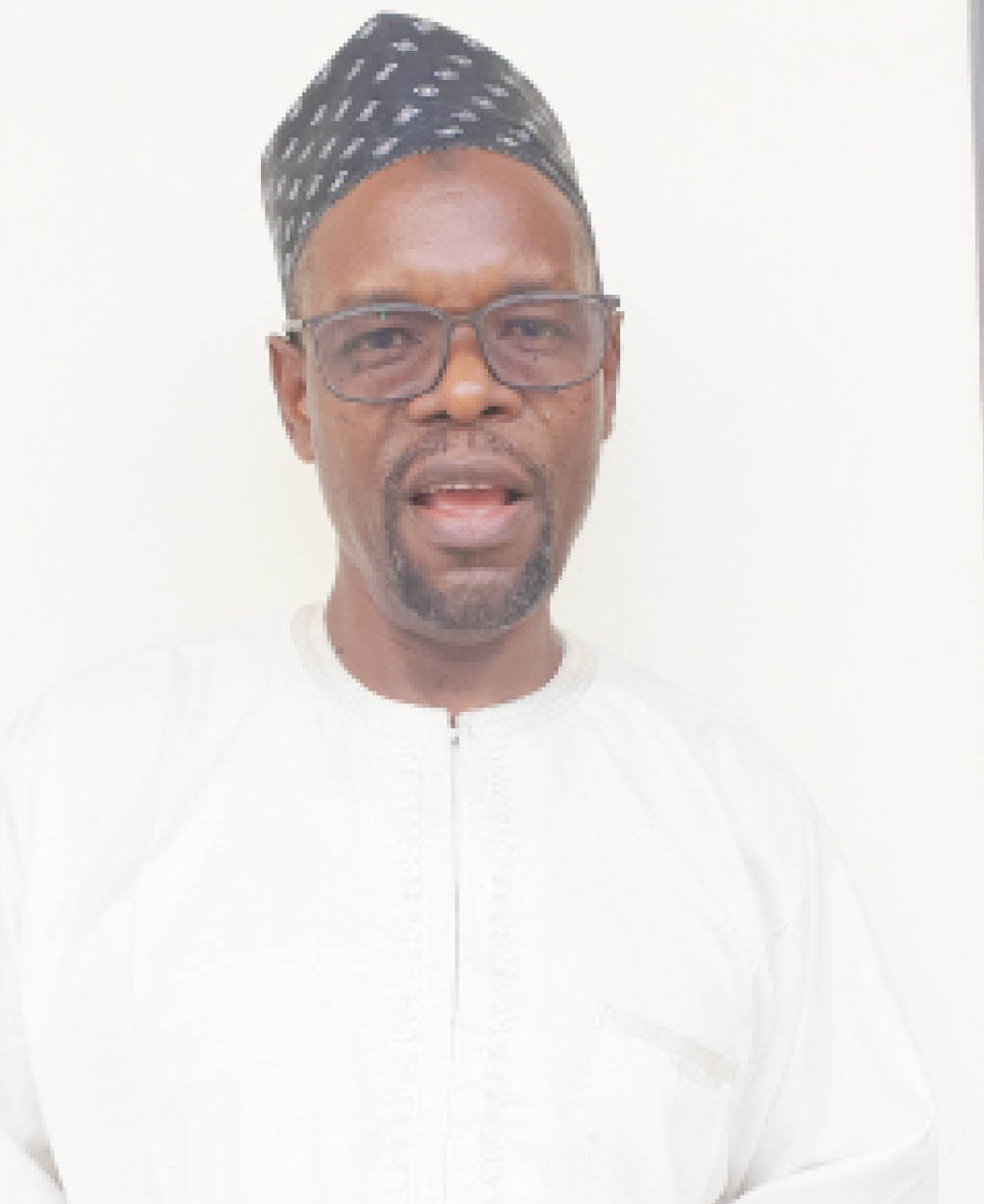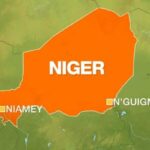Hassan Aliyu is one of the victims of the Abuja-Kaduna train attack who stayed in captivity with his Pakistani colleague and others before they were released after a series of negotiations. In this exclusive interview, he spoke on the activities of the bandits, where the government is getting it wrong, and how to resolve the protracted problem.
Daily Trust: You are one of the victims of the Abuja-Kaduna train attack; how were you treated? Was there shelter?
Hassan Aliyu: We were asked to give phone numbers to be contacted, so, I and my colleague contacted the office. There were no demands at that time at all because when our general manager wanted to find out what they wanted, they refused to reply. We were asked to go somewhere near a very big tree to sit. One by one, they asked for our names, jobs and so on. I think that was when they took the first video where some of us were asked to talk to the government.
- Troops neutralize scores of terrorists in Kaduna
- 484 Kano communities to benefit from $20m COVID-19 agric intervention
They took us to another place, which took quite a long time to reach. We used to look at the sun to determine the time. Some moved by foot, but people like me that have problems, or the elderly ones, were taken on motorcycles. We travelled a long distance, just like the previous time, across mountains and valleys, until we reached a place in the night, where we slept. It was very cold.
There was no shelter. In the morning we arrived at a place that became our final abode. It took us three days to get there. I and others spent 75 days there before we were released.
What were you eating?
Rice and tuwon masara.
Well cooked?
Well, we did not like it; we only ate to survive, but it was plenty. They fed us very well in terms of quantity. We had rice mixed with palm oil and Maggi. The alternative was tuwon masara.
Who cooked the food?
The women among us cooked. The men fetched firewood, washed the utensils and fetched water.
Did they allow you to pray?
There was no problem about prayers; we were never harassed in any way. It was just the feeling that you were not free because wherever you wanted to go you must take permission. Whatever you want to do you must ask for permission. The only time you don’t ask for permission is when you want to interact among yourselves.
There was nothing like changing of clothes because we had one each. They provided detergents and bar soap. We would go to the stream, take bath, wash our cloths, wait for them to dry and come back.
At what point did you know what they wanted?
I think it was the second or third day when they came and said those who wanted to bail themselves should raise their hands. We raised our hands and some of us were picked and told what to pay. You either accept or reject. No negotiations. I was going to pay N100million and my colleague, N200m. What could we do? We just had to tell our people. So, I and my colleague were asked to pay. I could not speak to our company because of the location. And because of my legs, my colleague went with them to where there was network and negotiated.
Few days later, Anwar was able to bail himself and left. So, we waited for like 12 days and there was no information. Then one day, some of the commanders came and said we were okay. They said we didn’t have to pay anything because they were talking with government and that government wanted to see proof that we were alive so we had to take pictures. We were led in batches and they took our pictures.
After that, the government was not doing anything. They told us that our government was not serious. They said their demand was very little. We told them we never asked them to talk to the government as we could see what to do to bail ourselves. They said they were talking but things were not working fast.
The waiting continued. They would come and say we should not worry but just keep on praying. They acted nice. If they came to preach to you they would tell you about the Qur’an, their ideology and why they are doing what they are doing and why you should be thinking along that line, etc. They would challenge whether you had a superior argument about what they were saying. They would give you a freehand and ask for evidence in the Qur’an and Sunnah.
Did you give them some verses?
No. I don’t know whether you can argue with a man holding a gun. I recall a particular issue where somebody said there was a verse in the Qur’an that, “You should call people to religion with wisdom.” And asked why they were doing what they were doing. The preacher replied that there was nowhere two verses collided in the Qur’an. That before anyone is labelled an infidel, such a person must have taught about Islam first. We disagreed. It was quite interesting. They would come in the night or during the day and we would interact. They would ask questions or you ask them questions and they would answer happily.
Are they elderly or young?
I did not see anyone my age. They are young people, some of them are teenagers. Some are probably in their 40s.
At what point did you regain your freedom?
I think it was in the evening. I remember we had our Asr prayers. We saw people coming and recognised some of them. But there was something very peculiar about one person; we were seeing him for the second time. The first was when we were asked to give numbers to contact our people and he came and addressed us. There was no introduction, and we were made to understand that he is the leader. They called him Malam.
When we saw him we knew that something fundamental was about to happen. There was a young girl among us and he asked for her name. When she said “Peace,” Malam said she must be from his former state. He asked for a pen and paper and wrote her name. He asked another young woman and she gave her name too.
He kept on picking people randomly and asking names. I was sitting at the end of the front row from where he was standing. Suddenly, he came to me and asked for my name? I told him and he wrote it. He gave a hint that we were going to be released and encouraged fellow abductees to send messages to their loved ones.
The following day, nothing happened although we anticipated our release. They came on the third day. I think it was on a Friday that their spokesman came with five packets of spaghetti to be cooked “for these people that are going out. They need to eat first because they are going.” Then it started raining.
How did you survive the rains?
There are small structures built with zinc – three or four. We all went there. The women took one. Later, they built a bigger one. So, if the rains persisted, we slept there.
Around six or thereabouts, because it was raining, I thought we might not be going until the following day. But suddenly, there was a command that we should come out. We came out and were taken on motorbikes. We travelled for about six hours at night, crossing rivers; some of them flooded.
How many of you?
Eleven of us. But there were about 30 motorbikes or more. All of them were with arms. Then we slept in a village. I asked and they said the time was around 1am. We were fed with spaghetti in a very big bowl. In the morning we started again until around 1pm when we arrived at a place.
We kept resting and drinking water. They always took us where there was water. Around 1pm we were asked to wait somewhere. We waited for about 30 minutes. I said my Zuhur and Asr prayers there. The advanced party came and said we should go. We left again and travelled for like 30 minutes, then we saw a huge military truck with armoured vehicles and pickups. Deep inside I said, “Alhamdulillah! These are the people that are going to pick us.”
But as we were approaching, we veered off to the left.
Was it the whole convoy that veered off?
We went to a building where two buses and a pickup were parked. I saw Tukur Mamu and knew we were safe. We were exchanged with children and we boarded one of the busses.
They went there with children?
The rescue team went there with some children. It was an exchange. They were children that were released by the government. I think eight of them, and then they were exchanged with us. So, they took their children and we boarded a bus. We then drove slowly until we came to the Nigerian Air Force Base and straight to the Air Force Hospital, Kaduna.
Didn’t you pay money before you were released?
We didn’t pay any money.
Even your employers?
No.
But why you specifically; not others?
I guess we were lucky. You see, the suspension of talks with our people at home after Alwan was released was because they were having talks with the government. They told us their demand was for the government to release their children who were then being detained by the government. Eleven of us were released because the government acceded to their demands
Why did they take you straight to the hospital; did you sustain injuries?
No; I think it is the standard practice. Having stayed in that environment for long, they don’t know what might have been done to us, so they needed to have you in the hospital to be examined to see whether you have some forms of sickness or mental issues or trauma.
We were checked, and to the best of my knowledge, nobody had any issue. All our organs were functioning well.
After you left Kaduna, you were admitted in Abuja, was it a different case?
When we left Kaduna, we were flown to Abuja. Then another set of security guys took us to a hotel and we spent a night there. Another set of doctors came and examined us. The following day, we sat and discussed. The minister of transportation came. We had discussions with various security agencies. The Chief of Military Intelligence was also there.
Do you see light at the end of the tunnel in all these that are happening in Nigeria? As a victim, do you think these crises would end?
Everything that has a beginning will surely end. But I personally think that even if the government wins the battle, it may not win the war.
I feel that if we can engage these people constructively, I see the possibility of having an amicable settlement. Yes, they may be harbouring ideologies that may not be agreeable to us, but are they totally wrong? Are they really against the law? Don’t they have the right under the constitution to practise their religion or canvas for adherence like every other religion? Most Muslims and Christians go from village to village doing their Da’awa; preaching to gain converts. If some other people want to do this, will it be wrong?
Maybe their approach is different?
From what they and some people are saying, the whole thing started peacefully. You see, the problem with religion is that the orthodox always frown at those who come with new interpretations. In history you will see conflicts like this. There was a conflict with Shiites, there was even a little conflict between the Qur’aniyyuns and some others. It is the same thing with Christianity. The Lutherans had a serious conflict with the Catholics. It has always been like that.
It is just that these people are saying the rest of us are wrong because the foundation of our system is wrong. God Almighty said if somebody commits an offence this is his punishment; that is the Shari’ah. You have decided to set aside this to bring the constitution and other laws. They are saying you have deviated, and if you are now practising this, it means you are totally wrong. The question is: Are they totally wrong, or do they have some substance in what they are saying? Why are we even talking about who is wrong and who is right? Do they have the right under the constitution to introduce a new religion or practise what they think is the authentic version?
I think maybe our engagement and approach with them are wrong. We need to correct them by having a fresh engagement. Is it possible to convince them to lay down their arms, even if it is for some time? But I think it is not possible for the government to move in with all the military might and burn down the forests and kill everybody. It is not possible. The government can do that, but whether they have the political will is another thing. However, militarily, I think the government has the capacity, but what will be the end result? Will there be peace or more violence? They always claim that they have people everywhere; possibly, their people are also in the cities.
When Mohammed Yusuf was killed, we all thought this thing would cease. But over a decade now, has it solved the problem? It has escalated. Now that some people are saying there are probably outside influences, if you do that, will the outside influences stay away, or will they now come in a much more dangerous or another way to do things?
I think we should find a way to engage these people and see how we can solve this problem amicably. I am not talking about compensation, reparation or rehabilitation.
Are you talking about realistic discussion?
Yes. Of course there will be demands that if you want us to do this, you would do that. You can stay in your forests and do your religion. You can even come to the cities and preach, but with a condition that you would not abuse people or force them to accept what they don’t want etc. Like former President Obasanjo said, we should use the stick-and-carrot approach.
It seems it is not majorly because of money that these people are doing what they are doing, what do you think?
Well, they said they had no problem with money. It is not money they are looking for. They have certain people they want the government to release and maybe retract certain things they said about them.
Some of us that have been reporting them for very long find it very difficult to trust them. They were saying their children, and now the children have been released and they are saying their members have not been released. They stormed the Kuje prison and set their members free. They also released a video flogging some of the victims in their custody. What do they really want?
I guess you would have to ask them.
But their demands have been met, so in your understanding, what do they want?
You cannot in all honesty say that all their demands have been met because you don’t know all their demands.
But all they made public have been met…
Good! Did the government tell you the demands they have made? No. Those of us who were there know what they told us about what they are asking for. But they did not tell us everything they discussed with the government. They only told us what was relevant to us.
Now, they got their children released. I understand that when we came back there was some kind of disappointment expressed by the committee – that they agreed to release like 24 and all the women, but they released just 11 of us. I don’t know how they arrived at all these issues.
Then afterward, Mamu said he was not going to be involved, but he later went and negotiated for the release of people. Now, he is saying he is no longer going to do anything again, but the next you would hear is that he is in talks on behalf of one or two. So I don’t understand.
We really don’t know what exactly they want, and it is not our prerogative to know. It is up to them to tell us everything if they want. But I am sure they are still interested in talking with the authorities. There must be something they want from the authorities. And I am sure the authorities know.
But the government is keeping it secret?
Why is the government not ready? You see, whatever it is, there is simply no price that is too high to pay to save these 40 souls still trapped in that forest. These people are citizens of this country. They are not criminals. They have been contributing their quotas to the development of this country. Some of them have been paying their taxes. And it is their right under the law to be protected. So why is the government not taking that responsibility seriously? I think they should do that. If you cannot go and take them forcefully, then negotiate and bring them back.

 Join Daily Trust WhatsApp Community For Quick Access To News and Happenings Around You.
Join Daily Trust WhatsApp Community For Quick Access To News and Happenings Around You.


